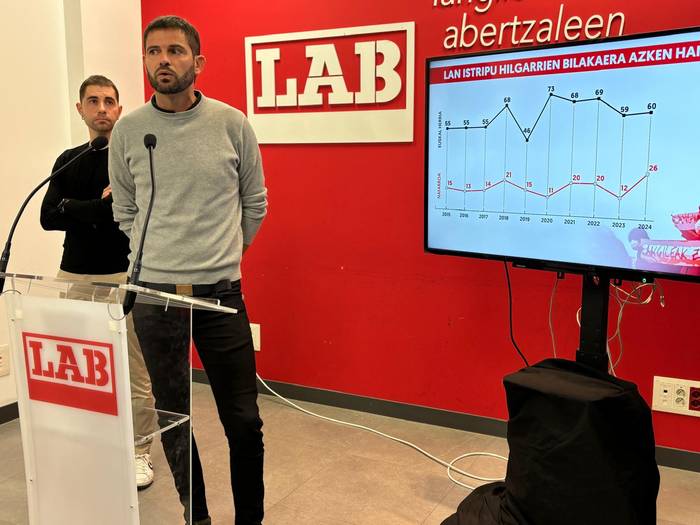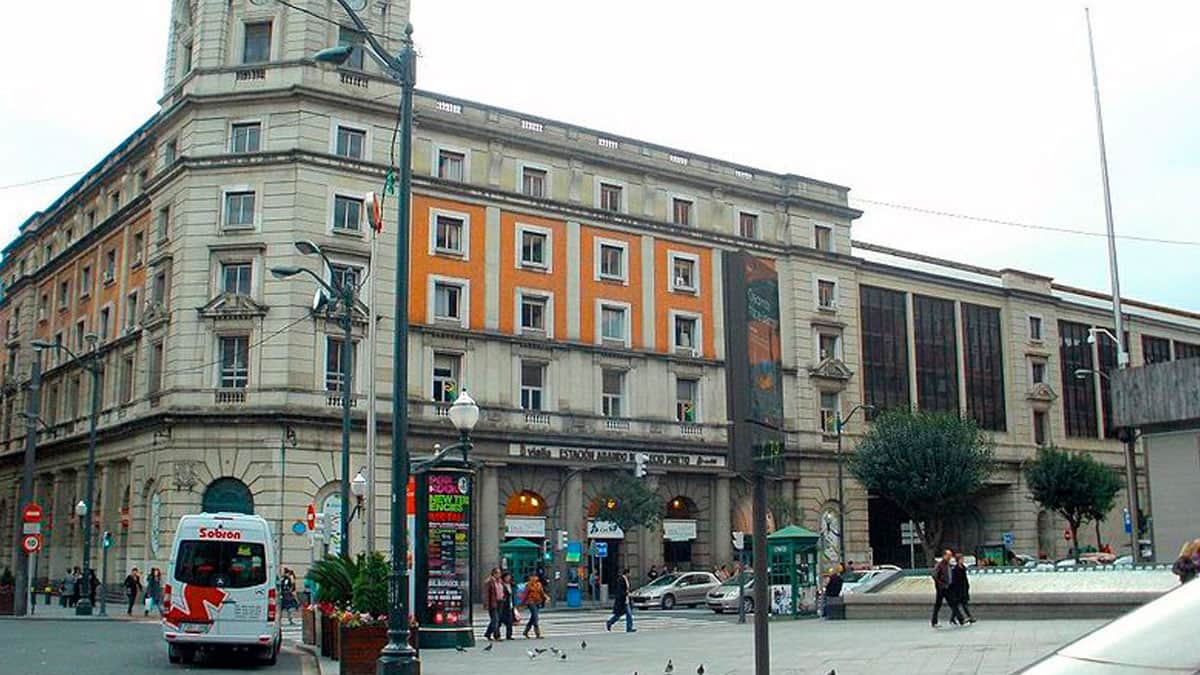Basque Oasis in flames
- The gross report has been published by economist Nekane Jurado, a member of HerriUni. He compared 2008, considered the first year of the crisis, with the current situation, and has shown that the gap between the rich and the poor is also widening in Hego Euskal Herria. Knowing that 533,222 people live below the poverty line shows that “there is no Basque Oasis”, except for a few who continue to grow rich.
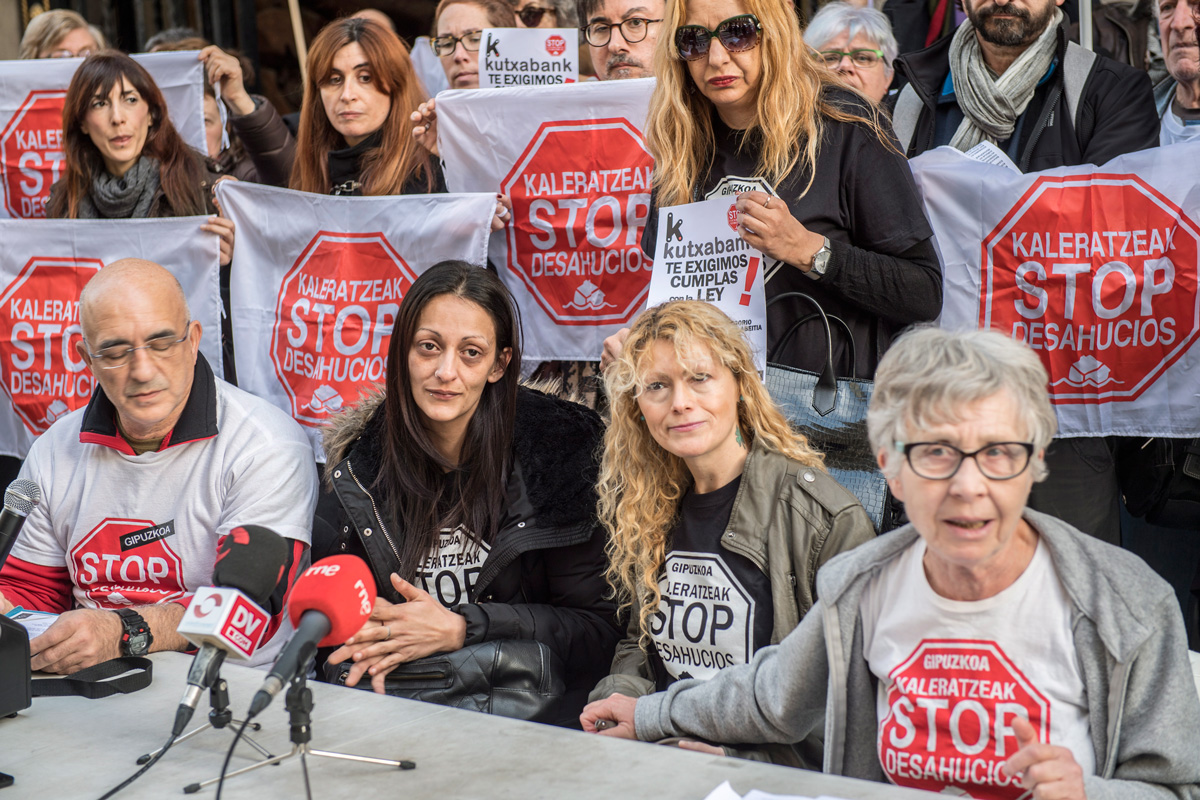
“The principle of hope will only materialize when the majority of the population realises that their living conditions are not by any natural or celestial law, generating poverty and impotence, but by the wealth and the eagerness of power of a few majestic.”
With this quote from Vicente Romano, the Economic and Social Situation report begins after the years of the great recession. This has been done by Nekane Jurado, a member of HerriUni, together with other social and political actors: Eusko Ekintza, Herritar Batasuna, Euskal Herriko Komunistak, Askatasunaren Bidea and Libertate Nafarra.Se relies on rigorous 100 page reports on data and statistics that have been published on both sides, portraying a black photograph of the situation.
The thesis of the work is that the budgets of Hego Euskal Herria between 2008 and 2017 have deepened year after year in the social imbalance. Nekane Jurado is very clear that while a large part of the citizenry is becoming impoverished, a few are becoming rich. This is not an intrinsic issue of Hego Euskal Herria, since in the European Union capital accumulation has been multiplied by a few countries. “With the Lisbon Treaty, the European Union began to dismantle welfare states in March 2000,” he says. Jurado argues that a second, more violent phase of the same process is currently being experienced. The cuts that were being made in the social sphere by the State, the processes that accelerated with the arrival of the crisis, in the absence of quick answers from the societies in shock.
“They have built a precarious society, at the whim of the law,” the author states in the report. He has listed seven factors that have fuelled precariousness: labour reforms, increasingly regressive fiscal policies, sharing of public spending between speculators and scammers, drafting regulations for the privatisation and liberalisation of public goods, increasing indebtedness, accumulating wealth versus increasing poverty and, finally, the demographic crisis in Álava, Bizkaia and Gipuzkoa.
Deepening the imbalance
“If capitalism is something, that is polarization, concentration of wealth,” says Jurado with severe gaze. OXFAM denounced at the end of 2016 that 62 richest people in the world have almost the same wealth as 3.5 billion poor people, and that half of the world lives with only 2% of the planet's wealth. The EU reports state that the concentration of wealth is particularly significant in the following countries: Poland, Estonia, Greece and Spain. According to studies carried out in the university world, the concentration of capital in the Basque Country is higher than the average of the Spanish State and the European Union. We have data from Spain: In the Spanish state, 1% of the richest goods have the same heritage as 80%. If in Hego Euskal Herria the situation is more serious, what are the amounts? Jurado has denounced that the public accounts of the CAV and Navarra are not transparent, and has pointed out that this particular data is missing for approval.
Who is enriching himself in the Basque Country? “Families in the financial and electricity sector, large shareholders”. Members of the boards of BBVA and Iberdrola, for example. As he believes that the great “lords” of the Alzer are silent when talking about this issue, he has included them in the group of those who are enriched. "When state-owned steel companies were privatized with the approval of the PNV, they were subsequently sold to large international companies and holdings. In this trafficking, some made great fortunes, and we would have to see how far corruption has come here.” The economist believes that the Basques "know very little" about the great rich in the territory.
Poverty and precariousness rise
On the other side of the coin, according to Eurostat data at the end of 2015, 122.3 million people in the European Union are at risk of poverty and exclusion. 24%, one in four; ten years earlier, when this group was in 15% of the population. In the Spanish state, between 2007 and 2015, the number of insects has risen by 26.6%, which means that there are 2.8 million new poor people since the beginning of the crisis. The report on the situation of poverty in Spain states that 19.3% of the citizens of Álava, Bizkaia and Gipuzkoa and 17.1% of Navarre are below the poverty line. 423,002 people in the CAV and 110,220 in Navarra. In total in Hego Euskal Herria one in five people below the poverty line: 533,222 people.
Jurado added that the data on the level of poverty in the CAV and Navarra also have a "trap". Who and where does the red line of poverty line? “This is relative and has been dropping in recent years so that there are fewer people behind that name.” For example, in the Spanish state in 2009, people who lived in households with incomes below 739.7 euros per month as consumption units were considered poor. In 2015 the level of poverty has been reduced to 667 euros, so all people with monthly incomes of between 667 and 739 euros have ceased to be "poor" in official reports, without any improvement in their lives.

The data of the so-called “poor workers” also seems to Jorge an alarming fact. 13.57% of Basques over 18 in the CAV receive no income of any kind, or receive less than 12,000 euros a year 44% of those over 18 years of age, according to Eustat data. “Less than 12,000 euros a year in our society you can’t access a home, you can’t eat, you can’t dress, you can’t get energy.”
According to official data, about 255,000 people in Hego Euskal Herria suffer from energy poverty. Jurado has been convinced that the concept of energy poverty has become fashionable, but that is an indicator of economic poverty. “We can speak, in addition to energy, of nutritional poverty, of care poverty, of cultural poverty, etc. People who suffer from energy poverty, not only do they suffer from it, but if they had resources, they would use electricity. It seems that we do not want to see the global diagnosis, what is at the bottom is that they are economically poor.”
With the law in hand, build precariousness.
Although the big data soup that follows can be difficult to assimilate from the reader to the first blow, the X-ray of these well-documented data clashes with the idea of economic recovery that is spreading across different actors.
- The Basque industry has grown from 48.8% of GDP in 1975 to half in 2015, to 24%.
- Industrial workers have been reduced from 355,400 to 181,041.
- Since 2008, 142,000 jobs have been destroyed.
- 93.5% of the contracts concluded in the CAV are temporary, with an average duration of less than two months.
- Hego Euskal Herria closed 2016 with 176,217 registered unemployed, to which must be added those not registered.
- In 2009, 68.7% of the unemployed perceived the benefit compared to the current 37.5%.
- Average expenditure per person receiving unemployment benefit has fallen by 19% between 2009 and 2016.
- Currently, 39.4% of young people under 44 live in the parental home, compared to 34.4% in 2008.
- Between 2009 and 2014, 14,300 young people have had to migrate abroad for economic reasons.
- Insecurity, dependence, lack of self-confidence, stress, socialization problems, depression or mental illness are becoming more and more frequent.
- In the period 2009-2014, 1,328 people committed suicide: 296 in Navarra, 1,032 in the CAV. 4 suicides per week.
GDP, a misleading figure
“In 2016, the economy and employment have been restored for the third year in a row in the Basque Country and the recovery will be extended to 2017,” Confesbask said last year. As for data such as Gross Domestic Product, this can be understood. The Gross Domestic Product (GDP) of Hego Euskal Herria rose 2.9% in 2016, according to data provided by Eustat and the Navarro Statistics Institute. In analyzing this data, Jurado has stressed that all the capital of companies such as Iberdrola and BBVA is accounted for, “a wealth that citizens do not even smell”.
“Let’s suppose that GDP is a cake made with everyone’s flour, although the flour here is added, as from South America, which steals some of the other territories. Once the cake is made, it divides between the number of neighbors and, moreover, since we are very few, a high number comes out. In the CAV we leave EUR 33,000 per person, while at home we are two 66,000 and as a child we have EUR 99.000. That almost nobody has it. When you play with the averages, with the per capita income of the Basque Country, etc., all the differences are hidden. It's terrible."
The report notes that the increase in GDP is due to three main factors: the monetary factor, tourism and exports. The principal agent is the monetary. “Behind it has nothing, it’s fictional.” It recalls that about two years ago, the European Central Bank launched what it called "monetary expansion", that is, that, given the depth of the crisis, they produced more money and gave banks negative interests: EUR 1.14 billion. "Banking, otherwise, could not hesitate in any way to buy public debt from countries, lower the risk premium and increase inflation. This is a very risky politico-economic operation, which has already been carried out by the United States and Japan. The GDP of the European countries increased between 1.8% and 2% in the delivery of money to the machine.” Juror believes that this is not a long time to go.
“We know that 2% of the increase in GDP is due to the expansion of the monetary mass. Another 1% has gone up for tourism, but it is very cyclical”. In some countries around the Mediterranean there is great political instability, including attacks on tourists, as well as a number of terrorist actions. And for all that, ours rises.” The report stresses that the precariousness of workers in this sector in Hego Euskal Herria is guaranteed by the low price and influences the rise of tourism companies. Jurado does not support this tourism model.
On the increase in exports, he says that it has not caused so much increase in GDP, although the official discourse says otherwise. These go even further because the price of the product has gone down, because the workforce is getting cheaper. "They're building poverty," he says flatly.
Dangerous public debt bubble
The financial economy has more weight than the real economy, as they argue in the report. “On the one hand, because workers have found a way to compensate for low wages with credits and, on the other, because big capital has found a way for self-reproduction and unlimited growth. Since the 1970s, the credit system has become a new capital lever for the elimination of the wealth of citizenship.”
The public debt of the CAV has increased 16 times since the beginning of the crisis. In 2007, the CAV had a public debt of 642 million euros and in 2017 with 10.450 million euros, according to a report prepared by the Bank of Spain. He explained that 10% of the 2017 budgets go to "debt and interest".
The economist sets as an example the case of a family in which it shows that public debt directly affects the average citizen. He has asked for a mortgage for his house, another for his car and another for another purpose. “I have debts to banks, but doesn’t it affect me? I live at a certain standard of living. However, this is not real and will explode sooner or later. On the one hand, because I have to return the capital at some point, and also because I am paying interest year after year. It is therefore affecting the payment of income, electricity or food. Adding to the situation is the fall in income and the lack of prospects for economic growth in the future, you are increasingly indebted, and that is what has happened. Euskal Herria has gone down that road.”
25% of the debt of Álava, Bizkaia and Gipuzkoa is intended to cover the works of the TAV: The Basque Government has unilaterally advanced EUR 2.570 million to the Basque public coffers. It says that 30% of the outstanding debt has been to deal with APR payments. “The EUR 390 million planned for this year has already been paid with debt, i.e. debt and interest could be 30% lower.”

In addition to public debt, private indebtedness means, in his view, that citizens "get stuck in precariousness". “Not only in the workplace, we live a huge precariousness in our lives. The loans were granted massively, most of them have small debts to the people, and in the end you only have to take the work that they offer you, with all misery. Debt is the way to chain people forever to precariousness.” Jury has also underlined that young people are increasingly indebted, so they have paid more.
The data offered in advance is the tip of the iceberg, as they are based on the income controlled by Hacienda. The tax fraud of EUR 13.560 million that has been left out is mainly located in a small family and business environment. This information was given by the union of technicians of the Ministry of Finance at the General Boards of Álava in March 2012. Mention was also made of the "high tax fraud" that is taking place in the CAV tax system. “Is that a lot or a little? The budget of the Basque Government amounts to EUR 11 billion. 13.560 million scams Only that can double the budget,” says Nekane Jurado.
Who puts everybody's money?
Jurado has considered that the contribution made to Hacienda by the large Basque companies that are having a great profit is very low. “According to the data provided by the Office of Tax Coordination of the Basque Country, 92.2% of the total collected in the CAV comes from work performance, 6.1% of the economic performance and the remaining 1.7% is made up of the rest of the elements. This means that of the 100 euros that are raised here only companies are being put in place, and the rest we put in citizenship.” He explained that the crisis has served companies to increase tax fraud, which has reduced their contribution by half, according to these data. “From public money they receive more than those who demand infrastructure and subsidies, and politicians tell us that in order not to put pressure on big companies, that we are in crisis and that it is enough to keep them alive; when it comes to wealth rising and lowering its contribution,” he enrages.
The report notes that the citizens of the CAV and Navarre are paying more and more to the Spanish Government through the Cupo. The quota law, which is renewed every five years, expired in 2011 and has since been extended because the figures between the Basque Government and the Spanish Government have not been agreed. “The quota is the money that is paid to Madrid for the competences that the administrations of Hego Euskal Herria do not have in their hands: The CAV has 6.24%, and Navarre has 1.6%, according to the weight that the economy of these territories had at the state level a few years ago. “Let Madrid waste what we don’t have, we pay that percentage.” It says that Madrid is multiplying spending in these areas, increasing expenditure on public debt, unemployment, social security, expenditure by NATO or the European Union, in Monarchy, in the army and many others. He wants to stress that the administrations of Hego Euskal Herria are paying huge amounts, when the amount of money that is raised by the fall in the tax pressure is falling.
The report states that the municipalities of Euskal Herria are totally indebted throughout the world. It says that MEPs first have to pay the quota with Spain, then have to give another fixed percentage to the Basque Government, and then it says that the money that remains is for the peoples and parliaments. “The people who have water to their neck are the city halls. All the risk is ours, all that you spend because we are paying Madrid without taking our income into account. And in times of crisis that continue, in this transformation of the economic system, it can lead to a financial breakdown of the Basque public system. And this is kept quiet by the PNV, because it is its management model.”

He believes that the situation cannot be understood without analysing the political economy, by setting an example to Greece, which had to accept a sentence in order not to leave the euro, even if the Left has a large accumulated power. Miss the criticism. “Budgets are the political embodiment of a party. A party’s political programme needs public funds, funding, and that is the budget. The rest is discourse.” Nowadays, although he recognizes that there may be differences in the discourses, he says: “In practice and in background ideology, the differences are minimal between what is called the left and the right. It is what is happening to social democracy.” In addition, he said that he is "very critical" with the change of the Abertzale left in recent years. “EH Bildu has fallen into social democracy. Today, everything is an institutional game, when politics is driving from the economy. Last year there was no deep criticism of budgets,” he says.
“In a society as old as the CAPV, the services sector is offered, tourism is strengthened, promoted on behalf of the Guggenheim, money is still being wasted in the construction of the TAV, the entire industry and in the tax havens of EE.UU is being destroyed. Many companies here have a huge amount of money. So there is no way out.”
Since 2014, all the companies that make up the IBEX35 in Spain have a presence in tax havens. In 2012, 555 companies were registered in these territories, 815 in 2013 and 891 in 2014. Among them are the “big Basque companies”, Iberdrola, BBVA, Gamesa and others with capital in the Basque Country. BBVA, for example, had 52 commercial companies in tax havens in 2014. “With informational silence, who defends the impunity of the largest Basque multinational?”
Where we used to pay 100, we now pay 87 for the lowering of the tax burden. Conversely, in terms of GDP, wealth has increased by 5 percentage points. Lower the tax share. But what has come down? "VAT has been increased from 16% to 21%, so consumer tax has not been reduced. Income tax is also raising more money. What has therefore fallen by more than half is corporate tax. Thus, we can say that companies in the Basque Country are paying less than 7 out of 100, but that they have more than half of the GDP in their current accounts, the wealth generated by workers. Eat more than half of the cake those who have put 7 out of 100. What the hell is going on?” he says.
The high-level decisions taken in this decade, known as “crisis”, are having a direct impact on the living conditions of citizens. The report by Nekane Jurado can serve to understand in the future the direction society can take in these years ahead. In one sense or another.
LANBIDE has launched an anti-fraud campaign in Income Guarantee Income and has created an anonymous whistleblower. Responding to the criticisms received, he said that this mailbox was merely an instrument for ordering complaints and notifications. It does not promote class... [+]









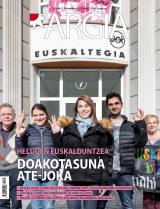

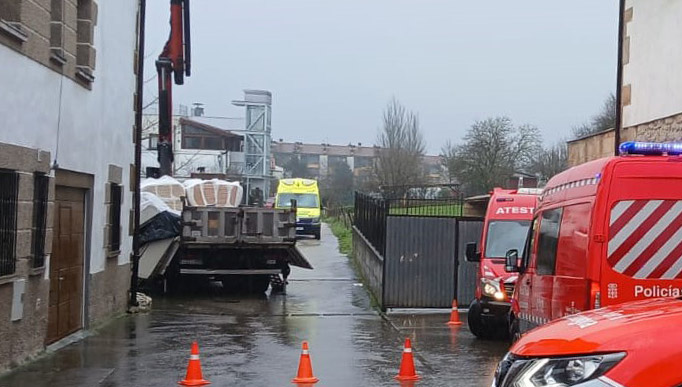




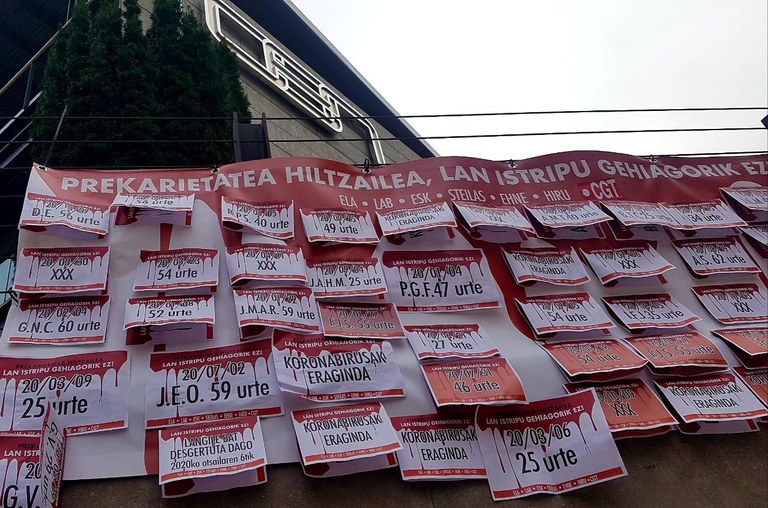
-(1).jpg)




